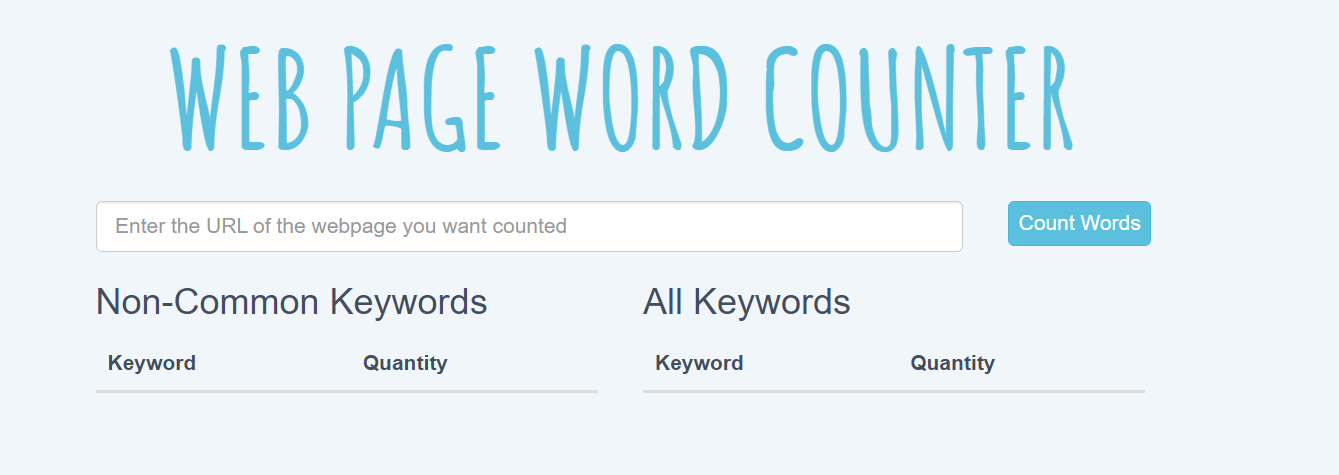How to Determine Word Count for Your Articles
Every keyword is different: here's how to know how many words to write
Word count is something that most beginner SEOs are extremely obsessed with and have a hard time figuring out.
I can see why they are confused.
Different SEO “gurus” recommend different word counts. Some say that you should always try to write extremely long articles that clock in at 10k+ words. Others say you should write more concise content that quickly answers the searcher’s intent.
Although word count is not quite as important as most people think, there are some guidelines you should follow when coming up with the optimum length for your articles if you want to end up on page one in the SERPs.
Come up with a range, not an exact number
I recommend coming up with a word count range rather than an exact number of words when assigning content to your writers (or yourself, if you’re doing the content writing on your own site).
The reason is simple: it helps eliminate fluff.
Everyone is sick and tired of reading articles online that have a long word count but don’t manage to actually say anything. The reason why those pieces of content exist is because someone told the writer to write an exact word count, so the writer added fluff to it to meet the requirements. This should sound familiar to all of us because we all did the same thing when we were kids in school and had to meet an arbitrary word count for our essays. It didn’t make for compelling reading, to say the least.
Exact word counts are terrible.
I recommend giving your writers a range of a few hundred words to work with so they can finish the article when they think it’s ready without adding filler content.
Bad example: 1,500 words
Good example: 1350 - 1750 words
How to determine the number of words you should write
There isn’t a standard amount of words that you should always write in all situations. Every niche is different. Each type of content you write on your site is different (informational, best-of, product reviews, etc.)
Most importantly, every keyword is different.
You should be tailoring your word count to the exact keyword that you’re trying to rank for.
The free way to do this requires a little bit of work.
Open a private/incognito window
Go to Google
Search for your keyword
Check the word count of all of the top-ten search results
Come up with the average (add the word counts and divide by ten)
Once you have the average number of words on the highest-ranking pages for your target keyword, you have the word count that you should aim for when writing your article. There are tons of free tools out there that will calculate the number of words on a webpage for you. For example, you could use WordCounter.net (LINK).
Doing this manually for every single article you write is going to get old really fast. If you’re willing to pay money for a tool, I recommend Surfer SEO.
How to use Surfer SEO to determine your word count
Surfer SEO (LINK) is the tool that I use for all of my content writing. I previously mentioned it in my topical authority guide (LINK), where I explained how I use it to come up with content ideas for a specific keyword.
You can also use it to determine word count. Here’s how:
Click on “Content Editor” at the top of the screen
Enter your keyword
Click on “Create Content Editor”
Wait for Surfer to generate the editor for your keyword
Click on keyword
On the right side of the screen, it will display the exact word count range you should use when writing your article
That’s it.
Surfer SEO takes all of the thinking out of your content planning and writing, including word count.
Conclusion
This was a much shorter article compared to what I normally write, but it gives you two different ways to come up with the exact word count that you need for each keyword that you want to rank for.
Word count isn’t quite as important as topical relevance when ranking content, but it’s definitely something you should think about when writing your articles.
Remember that no matter how good your content is, it won’t rank without links. To come up with a backlink strategy I recommend reading my authority blueprint (LINK) and Chad-tier link-building tactics (LINK) articles for more info.
Free articles on Second Income SEO are supported by:
►Surfer SEO - Generate an entire content strategy with a few clicks. This tool features a content editor that is equipped with Natural Language Processing technology that gives you the exact phrases you should use to help your article climb to page one in the SERPs and outrank your competition. If you’re not using this tool, you’re falling behind.
►Jasper - Use an AI assistant to write your content faster and easier. Jasper creates original content for meta descriptions, emails, subheadings, post headlines, website copy, and more.
►Kinsta - Set up your first website with a few clicks. Follow an easy and intuitive process to set up a domain name and hosting. This is step one to earning WiFi money.





Amazing tool (surfer). How bad is it to be well short of the word count if you are well into the green? Especially for a new site where backlink building is still to be done.
Surfer is so fucking sick.